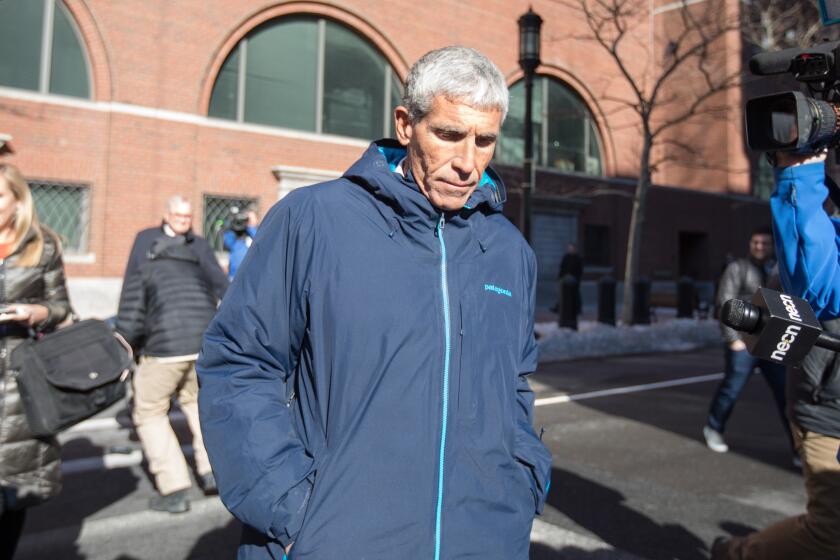Commentary: Local climate lobbyists see common ground for bipartisan action

The U.S. Geological Survey predicts that two thirds of California’s beaches could be lost to climate change by the end of the century. According to new research, rising sea levels will annually flood all of Balboa Island and the entire Balboa peninsula by 2050.
With the loss of beaches and billions of dollars in coastal property, coastal communities stand to be among the biggest losers to global warming. In January 2018, city of Newport Beach staff and UCI consultants warned that seas could rise as much as 5½ feet by 2100, and adaptation costs to taxpayers could approach $1 billion.
Without question, our local as well as our planetary home are in grave danger. Scientists have identified the problem, and it’s now up to our political leaders to fix it.
Since the climate crisis is a global problem, political leaders around the world will need to promote government policies that transition us away from fossil-fuel economies to ones powered by clean energy.
This transition must be started without delay and accomplished in a way that is socially and economically just. And, in America, to endure changes in political power, history shows that bipartisan support is essential.
One sign of hope across party lines is the rapid growth of Citizens’ Climate Lobby (CCL). In Orange County alone this nonpartisan grassroots organization has hundreds of volunteers, Republicans and Democrats, organized in chapters located in each of its six congressional districts.
Yet, is there any hope that Republicans and Democrats can find common ground on climate policy? They appear to be miles apart.
President Trump and most Republicans currently in office seem to belie any chance for bipartisan action. The most recent Republican plan ignores the scale of the problem, focusing on planting trees and encouraging carbon capture and storage technologies.
It offers no incentives, through taxes or regulatory standards, to transition to a non-carbon-energy future. This approach accepts the continuation of fossil-fueled economies.
There is, however, an “old guard” of Republicans, including former Secretary of State George Shultz and former Treasury Secretary James Baker, who accept climate science and understand the urgent need to reduce carbon pollution. Their Climate Leadership Council promotes a market-based, fee and dividend carbon pricing approach.
Gradually rising fees on fossil fuels are returned as dividends to citizens. Border adjustments protect U.S. businesses and workers, while incentivizing other countries to adopt similar policies. This approach has the support of leading economists and major business leaders who believe it provides the fastest most powerful way to cut carbon emissions while safeguarding low-and-middle-income households.
Democrats have long favored carbon pricing. Indeed, since 2013 Democrats have introduced 26 carbon pricing bills, including eight that are currently before Congress.
Most recently, Democratic presidential nominee Joe Biden as well as House and Senate Democrats have released comprehensive climate plans that encourage or at least recognize the value of this approach.
The fact that carbon pricing has advocates in both political parties singles it out as the most promising common ground for bipartisan action.
An even greater cause for hope is the fact that the most popular carbon pricing bill currently before Congress, with 82 co-sponsors, the Energy Innovation Act (HR-763), employs the same fee and dividend approach advocated by the Republican Climate Leadership Council.
Locally, this legislation also has the support of Orange County Reps. Harley Rouda, Katie Porter, Lou Correa, Gil Cisneros and Mike Levin, as well as the city councils of Costa Mesa and Santa Ana.
In the end, it may be voters who insist on bipartisan climate action. Current polls routinely show that voters of all persuasions continue to be deeply concerned, even during the current coronavirus pandemic.
The climate crisis is urgent. To avert its worst impacts, locally and globally, our political leaders must come together on a way forward. Carbon fee and dividend policies could provide the necessary common ground.
The writers are volunteers with the Orange County Coast Chapter of the Citizens’ Climate Lobby.
All the latest on Orange County from Orange County.
Get our free TimesOC newsletter.
You may occasionally receive promotional content from the Daily Pilot.



